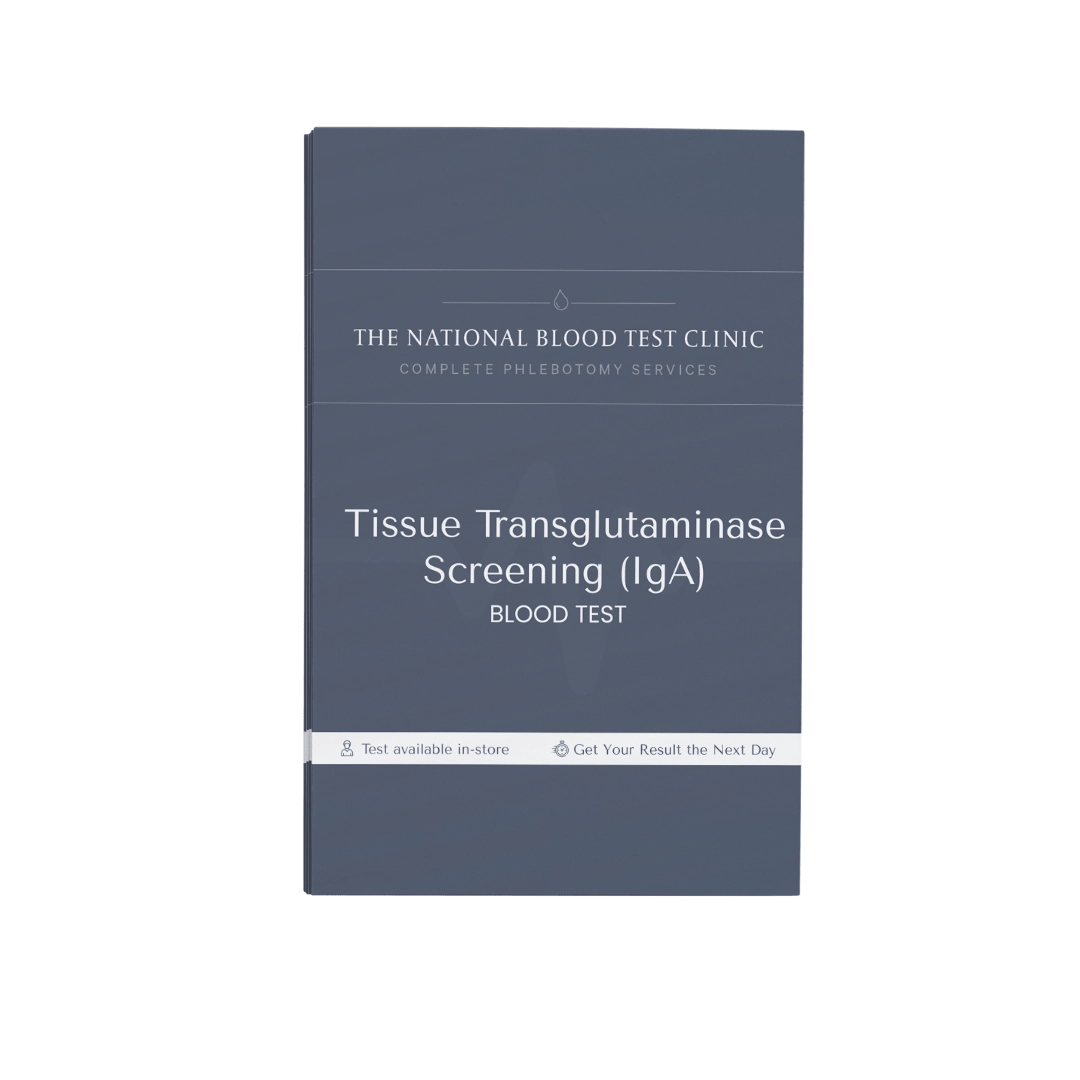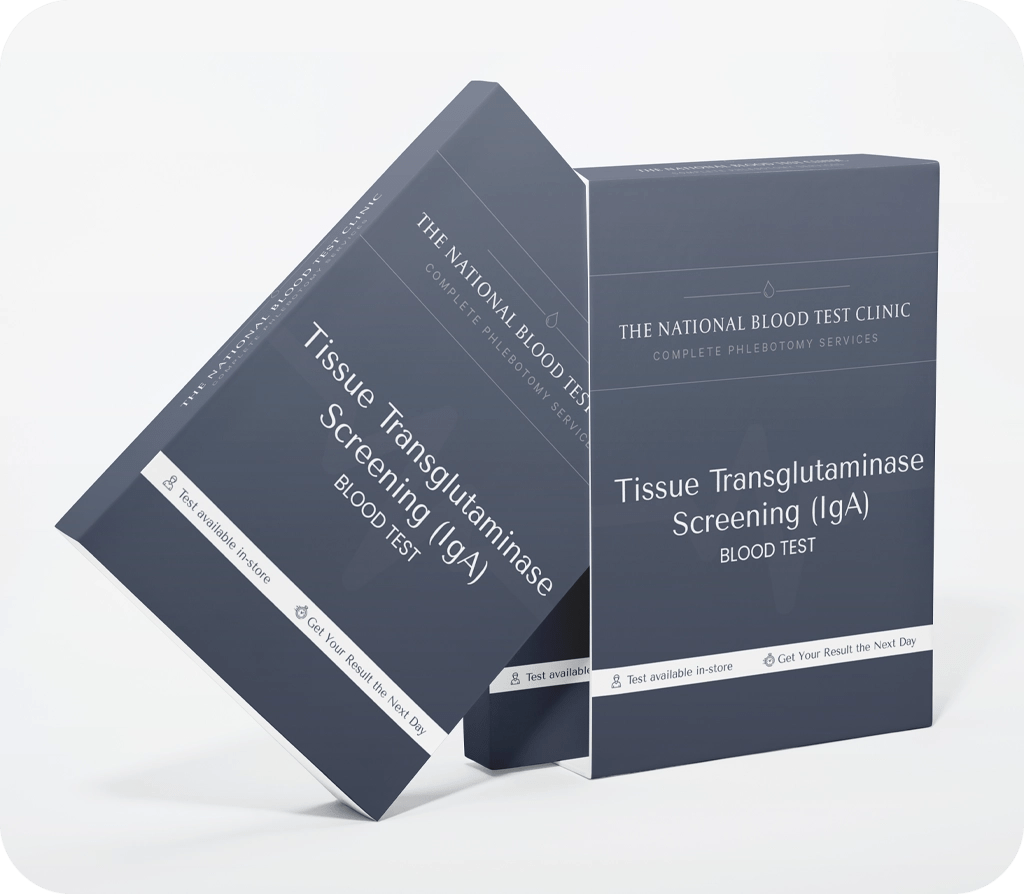My Store
Tissue Transglutaminase Screening (IgA)
Tissue Transglutaminase Screening (IgA)
SKU:TTG
Unexplained bloating, diarrhoea, fatigue, or nutrient deficiencies may signal coeliac disease. The Tissue Transglutaminase IgA Blood Test checks for IgA antibodies that attack the small intestine in response to gluten, making it one of the most reliable markers for coeliac disease.
Why the Tissue Transglutaminase (IgA) Test Matters?
Detecting Tissue Transglutaminase IGA levels helps identify autoimmune activity against gluten. This test is widely used to screen for coeliac disease, allowing for earlier diagnosis and treatment, such as a gluten-free diet. Understanding your tissue transglutaminase IGA normal range is crucial in ensuring a timely and accurate diagnosis, giving you peace of mind and an effective management plan.
What Gets Assessed?
- IgA antibodies against tissue transglutaminase
Turnaround Time
- 5 Days
100 in stock
Visit a partner clinic (+£50)
Once you've ordered your test, look out for an email from our phlebotomy partners containing information and a link to book your appointment. We'll send you everything the clinic will need to complete the sample and post it back to our labs.
Organise a nurse yourself
If none of the above options work for you, you can arrange your own medical professional to collect your sample. There is no additional charge for this. Once you've ordered your test, we'll send you everything you and your chosen medical professional will need to collect a sample and post it back to our labs.
Couldn't load pickup availability
Enter Your Details
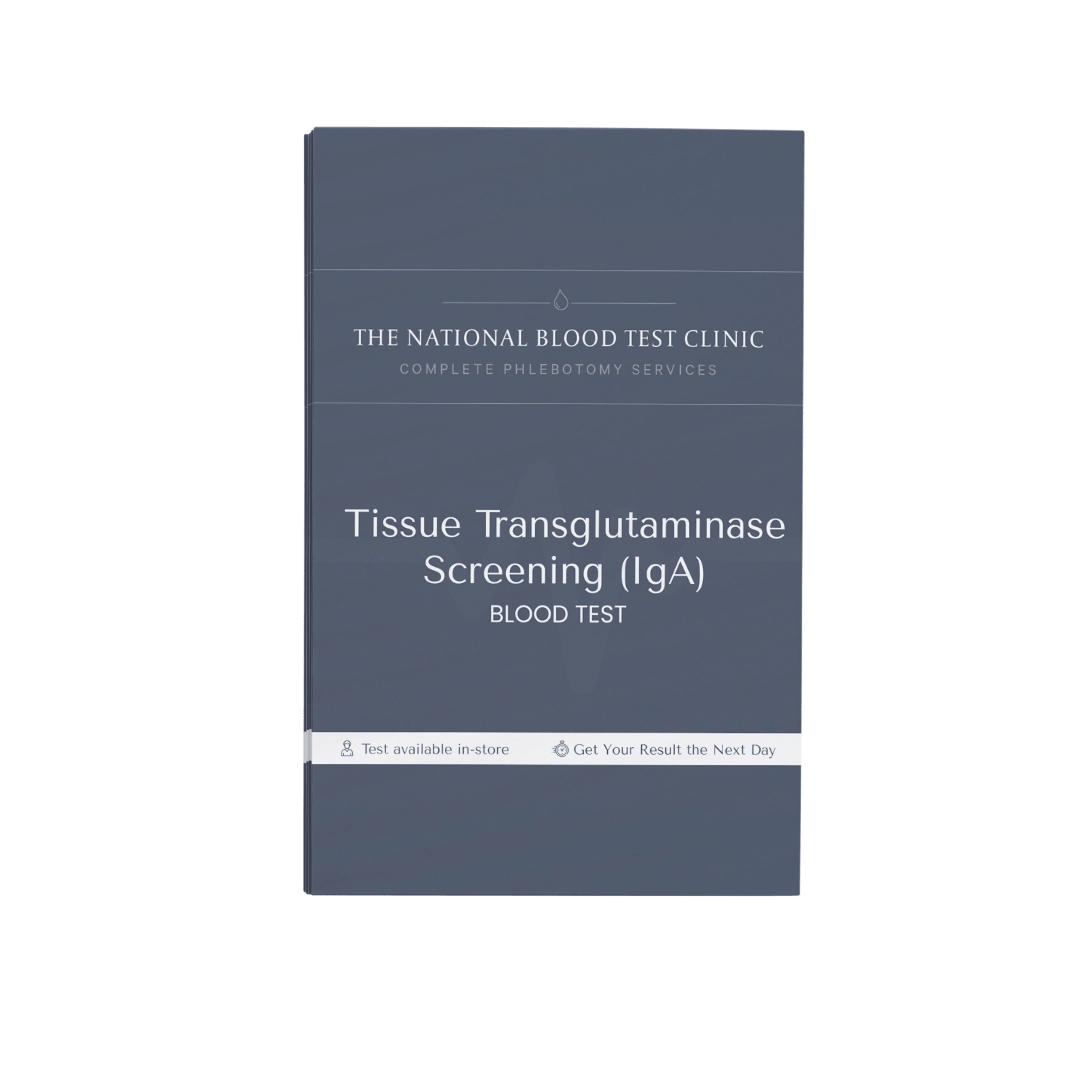
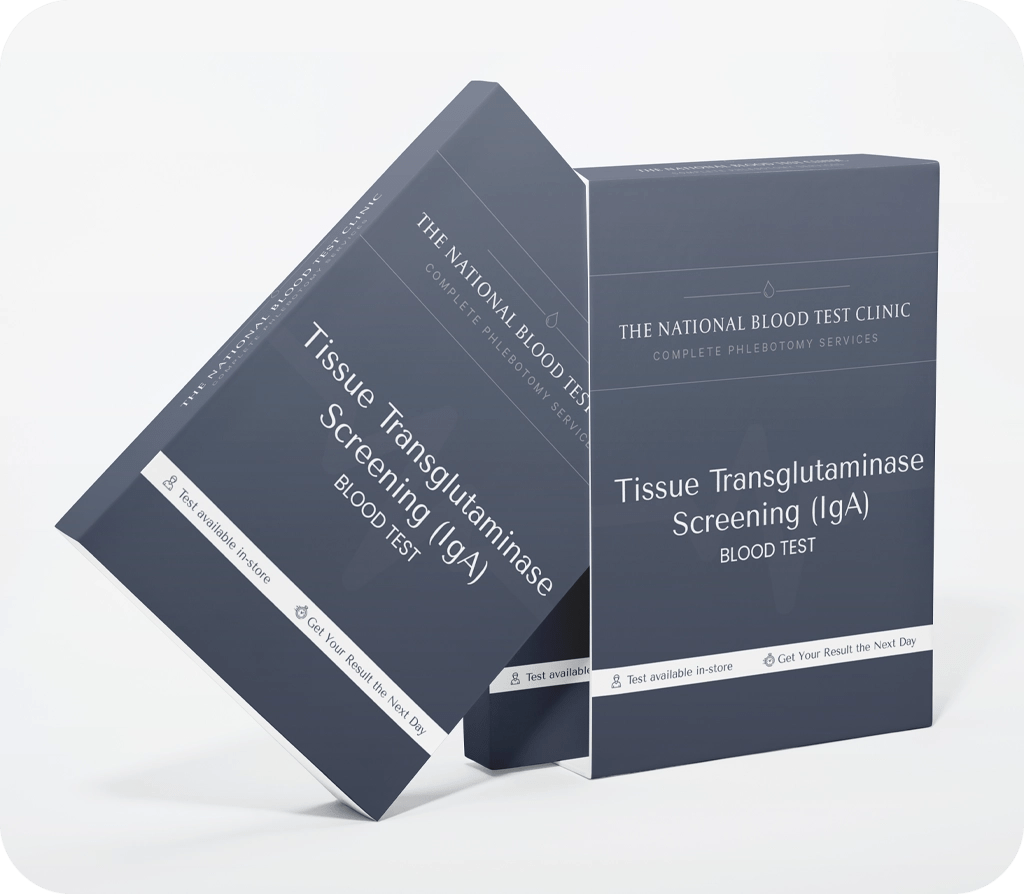
Visit a partner clinic (+£50)
Once you've ordered your test, look out for an email from our phlebotomy partners containing information and a link to book your appointment. We'll send you everything the clinic will need to complete the sample and post it back to our labs.
Organise a Nurse Yourself
If none of the above options work for you, you can arrange your own medical professional to collect your sample. There is no additional charge for this. Once you've ordered your test, we'll send you everything you and your chosen medical professional will need to collect a sample and post it back to our labs.
How Our Test Works
-
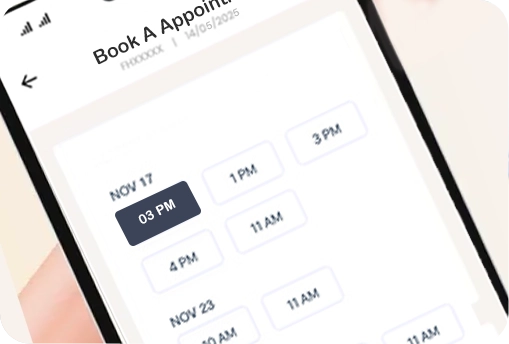
Place Your Order
Place your order online and receive a test kit delivered to your home. You’ll need to bring this kit with you to your scheduled appointment at one of our partner blood collection clinics.
-
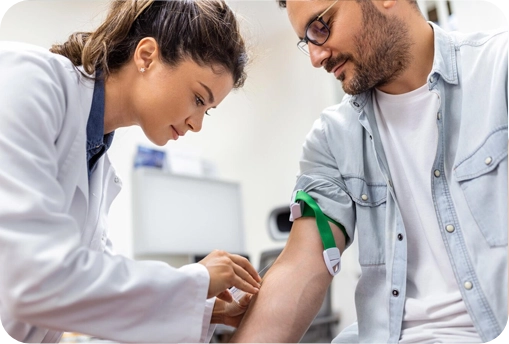
Attend Your Appointment
At your chosen clinic, a trained nurse or phlebotomist will collect your blood sample using the kit you bring. If a sample collection courier is not available at the site, you’ll be asked to take the sealed sample with you and post it using the prepaid packaging provided.
-
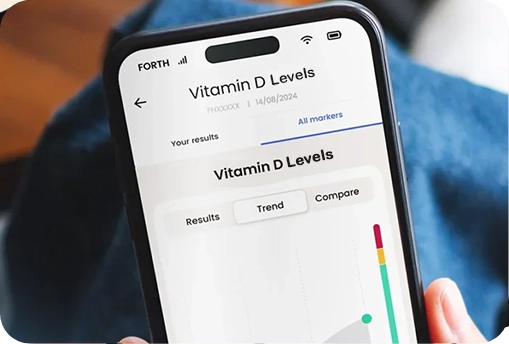
Receive Your Results
Once your results are ready, you’ll receive an email notification to log in and view them securely via your private portal. Please note: venous blood test results are not automatically reviewed by a doctor. We recommend booking a consultation with a qualified clinician to help you interpret and understand your results fully.
FAQs
What does the Tissue Transglutaminase (tTG IgA) Test measure?
The tTG IgA test measures IgA antibodies against tissue transglutaminase, an enzyme targeted in coeliac disease. Elevated levels indicate an autoimmune reaction to gluten.
Who should consider this coeliac disease test?
This test is recommended for individuals with persistent digestive problems, malabsorption, nutrient deficiencies, unexplained fatigue, skin rashes, or a family history of coeliac disease.
How is the sample collected?
The test requires a simple venous blood draw, which is then analysed in a laboratory to check for tTG IgA antibodies.
What do positive Tissue Transglutaminase IgA results mean?
A positive result strongly suggests coeliac disease or gluten intolerance. However, additional tests, such as an intestinal biopsy, may be recommended to confirm the diagnosis.
Can a gluten-free diet affect test results?
Yes. Starting a gluten-free diet before testing can lower antibody levels, leading to false negatives. For accurate results, you should continue eating gluten until after the test.
Subscribe to our emails
Be the first to know about new collections and exclusive offers.

